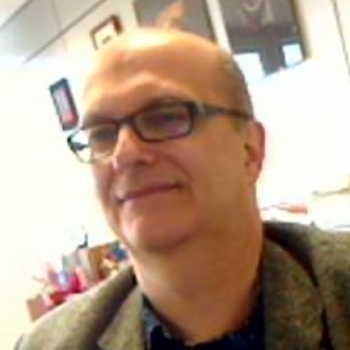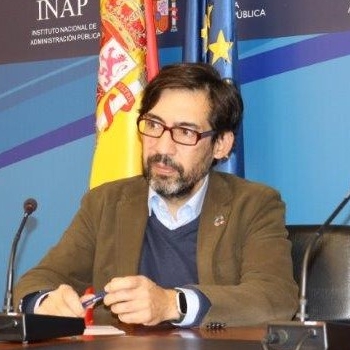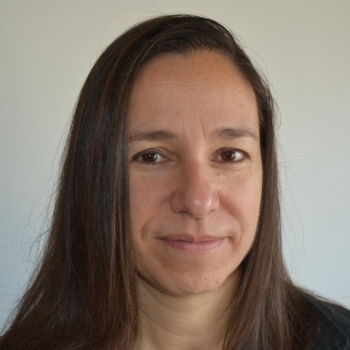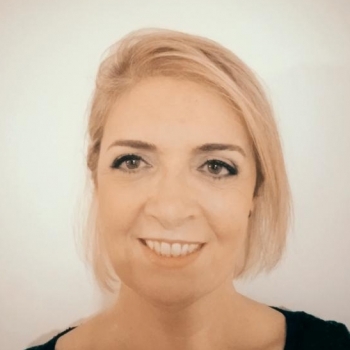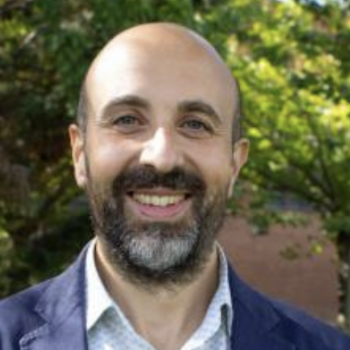SYMPOSIUMS
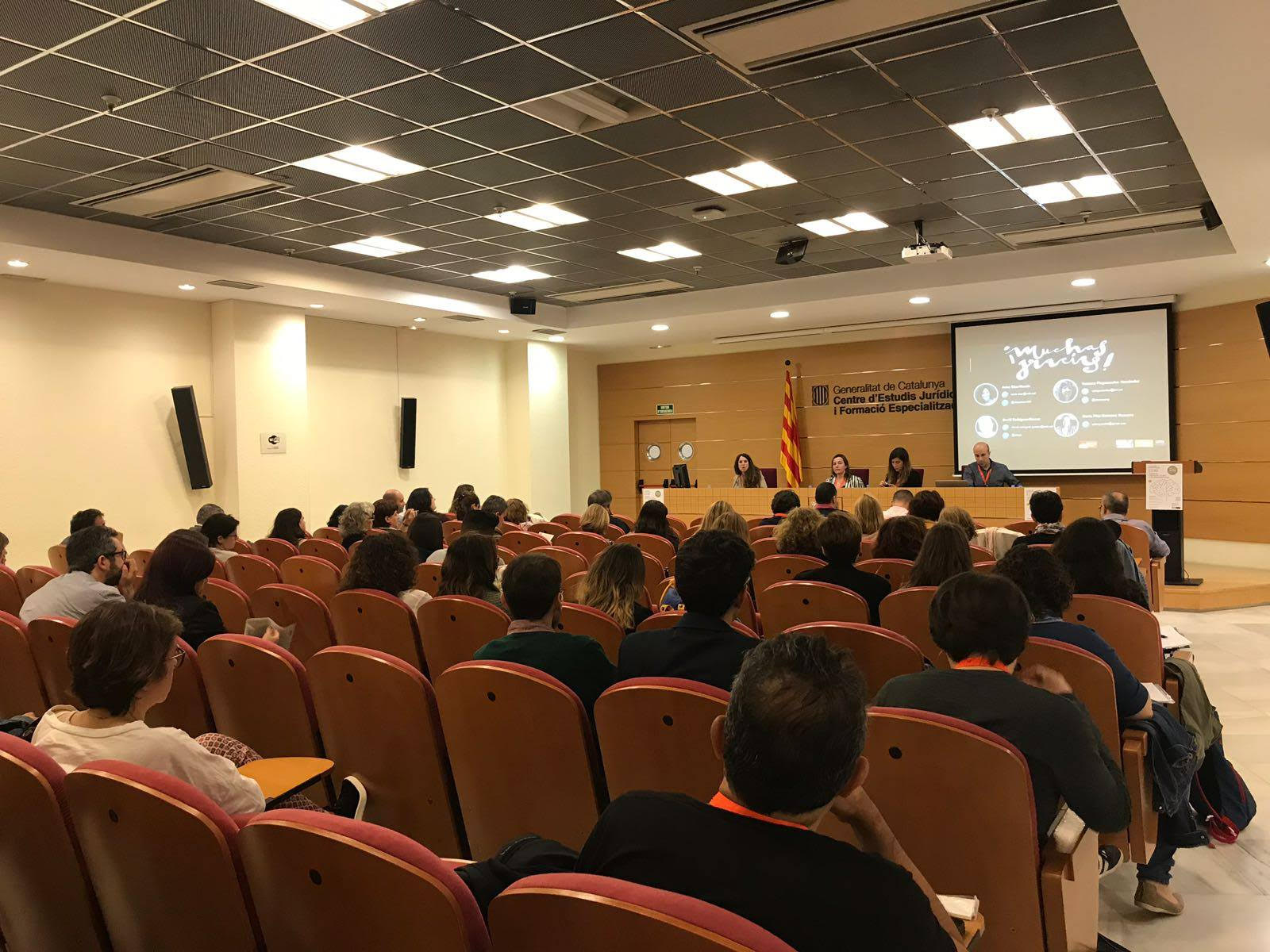
The pandemic has brought about a true revolution in the way of working and managing teams, both in public and private organizations. Teleworking, executive management of people and teams in hybrid environments, collaboration extended to larger and more remote teams, the personal self-management that all this entails, etc., incorporate new values into the ordinary functioning of the organization. Among them, trust, autonomy, self-demand, cooperation and accessibility stand out.
If, in addition, the intensive use of new and more powerful technological tools is added, a new scenario is set up which prolongs and expands its disruptive effect in the fields of training, learning and knowledge management.
The new way of working and relating is therefore incorporating an acceleration in the substitution of traditional methodological proposals, with the (new) technology, in its different applications, being only a minor component.
In these 2 years after the pandemic, some experiences have already been observed that contain disruptive and inspiring elements and that offer a new way of understanding and practicing training, learning and knowledge management. The identification, monitoring and transfer of them may help to advance towards a new generation of applied action proposals.
Coordinates: Marc Ceron Riera
Speakers: Manel Capdevila (Centre d'Estudis Jurídics i de Formació Especialitzada,CEJFE), Jaume Capó (Servei de Difusió del Departament de Justicia), Montse Garcia (Biblioteca del Centre d'Estudis Jurídics i Formació Especialitzada), Verónica García (Unitat de Formació del Centre d'Estudis Jurídics i Formació Especialitzada), Montserrat González (Unitat de formació del Centre d'Estudis Jurídics i Formació Especialitzada) and Montse Sagalés (Departament de JustÍcia de la Generalitat de Catalunya).
The need to plan strategies for the development of professional skills in Public Administrations is unanimously shared. It is true that many schools and institutes only carry out an annual schedule of activities for that year. Others, however, carry out a slightly broader exercise that allows them to anticipate resources. And the most advantaged even plan strategies by professional profiles. This process, which is undoubtedly essential from the point of view of the rigor of the work of the promoters of training in Public Administrations, is often subordinated to the need to muddle through. But the connections with government strategies that determine learning strategies are multiple. Are they being done?
It is about analyzing and reflecting on the systemic connections that enrich the learning strategies of the administrations. To do this, in this panel we propose to see in an inverse process: how the learning strategy, in this case of the General State Administration, depends on what the Public Function model is, which, in turn, depends on what the public administration model; which, in turn, must respond to the demands that the social contract poses. These four layers operate in an intertwined manner and as subordinate to each other. In short, it is not a matter of "patient" subjects, but of "agent" administrations. According to the following graph, the analysis of this issue will be carried out by four professionals directly involved in each of the systemic layers.
Coordinates: Israel Pastor
Speakers: Cecilia Güemes (Universidad Autónoma de Madrid), Carmen Navarro (Universidad Autónoma de Madrid) & José Ramón Crespo (Ministerio de Hacienda y Función Pública)
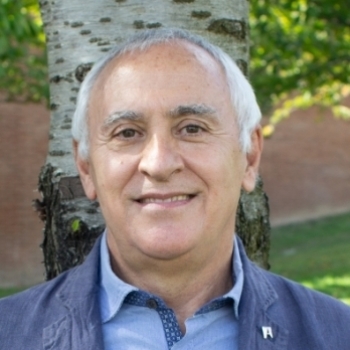
“Knowledge as we had understood it after the illustration has changed. We had never needed him so much and, at the same time, distrusted him. We live in the era of uncertainty and it becomes a basic premise to manage the unknown)” (Innerarity, 2022)
Given this statement by Innerarity, the following questions will be raised at the symposium:
Do we need, as a society, a new relationship with knowledge?
Are the basic premises that had defined it since the Enlightenment valid in the post-digital society?
Can we ignore the advances made in Artificial Intelligence and decision-making based on algorithms? (“We have to learn to live in a world in which technology makes decisions that we cannot supervise” Barzilay, 2022).
Can we minimize the influence of the Internet as a great short-circuiter of the traditional flow of information and knowledge transmission? (Innerarity, 2022)
Have we reached the deregulation of the cognitive market? Do we have to operate like intelligent (Bauman) ballistic missiles that learn (and forget) instantly?
What role should traditional institutions that offer training have?
Could there be -as Bronner (2022) affirms-, a cognitive apocalypse, given the avalanche of information to which we are exposed without new rules to process it?
Coordinates: Jesús Martínez Marín y Joaquín Gairín Sallán
Speakers: Ismael Peña-López (Escola d'Administració Pública de Catalunya), Marcelo Lasagna (Protea Becoming Adaptive), Ricard Ruiz de Querol (freelancer) & Maria Cano Bonilla (Videocation)
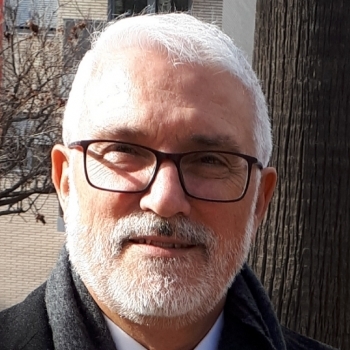
The teacher training continuum begins with the official qualifications that qualify for the teaching profession (Teacher's Degree in Early Childhood Education, Teacher's Degree in Primary Education, Master's Degree in Compulsory Secondary Teacher Training and Baccalaureate, Vocational Training and Language Teaching, courses of specialization in didactics for technical teachers of professional training), continues with the training process of induction into teaching and with permanent training throughout the entire professional career. This is called “professional development”. TALIS 2018 defines teacher professional development as the process of acquiring skills, knowledge, experiences and other characteristics that favor teacher professional growth.
The concept of professional development has to do with the process of learning throughout life (Life Long Learning) and the person's ability to remain competent. Professional development must start, first of all, from the creation of a competency framework, based on evidence, contextualized in the territory and agreed upon by all the educational agents involved; and, secondly, an analysis on how to adapt the different profiles to the needs of each moment. For this reason, it is essential to seek a balance between the needs of professionals and the strategic objectives of the organization.
This symposium presents the result of collaboration programs between the Department of Education and the Catalan universities to build a quality teacher training continuum: Internship Program in Early Childhood, Primary and Secondary Education (initial training), Initial Teacher Residency Program (induction to teaching), elaboration of the Framework of professional teaching competences, a key element for the accompaniment in the professional development of teachers.
Coordinates: Jesús Moral Castrillo
Speakers: Maica Gil (Departament d’Educació), Xavier Chavarria (UOC), Antoni Tort (Universidad de Vic-UCC), Patricia Olmos (UAB), Susanna Arànega (UB).
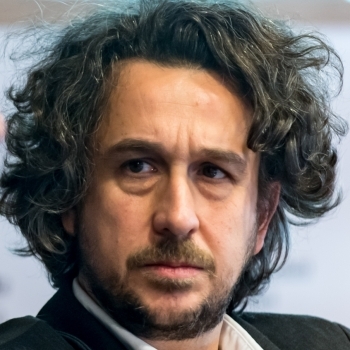
The administrations are immersed in processes of transformation of their design and operation. The starting point is the current model focused on the public function. The purpose of this model is the procedure and the role of the worker whose activity, above all, must be applied with guarantees. His authority is based on his knowledge of the norm, which, in turn, determines his selection process. When this knowledge changes, the training comes to update the worker so that he can continue to carry out his task within a hierarchical environment and delimited by competencies, in whose center the file is located. Mobility, when it exists, happens mostly horizontally and only vertically when certain requirements of seniority or acquisition of merits are met.
Increasingly, however, citizens are asking for responses from the Administration that require a model more focused on service and public policy. In this model, what the worker applies are useful skills for the design and implementation of a service or public policy. It is these competencies that determine the access model as well as the professional development model, both for themselves and for the team that is organized around a project. Far from the file, the logical operation is based on the interoperability of data and collaborative and complementary relationships. Logically, mobility is also based on the acquisition of skills and specialization makes vertical mobility easier and more convenient than horizontal mobility.
This paradigm shift requires, as a necessary condition, a transition from training models focused on professional updating to others, much more open, focused on skills and functions, and capable of moving smoothly from learning to training, to development and innovation, and vice versa: from applied research to self-assessment of skills and knowledge.
Coordinator: Ismael Peña López
Speakers: Olga Herrero (Consultant), Òscar Dalmau Ibañez (Unió Consorci Formació), Ismael Peña-López (EAPC) i Begoña Ballvé (City Council of Mollet del Vallès).
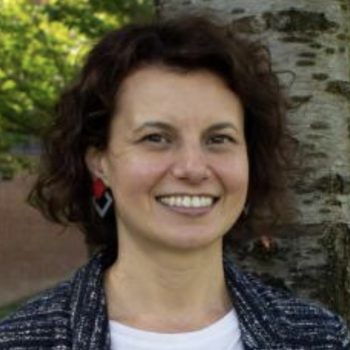
“The illiterate of the 21st century will not be those who cannot read and write, but those who cannot learn, unlearn and relearn”: Alvin Toffler said as early as 1970 in his book “Future Shock”. Starting from this premise, the symposium will discuss the changes that have occurred in educational organizations and the role that scientific evidence may have in their (re)design in the post-pandemic period. Specifically, it will be argumented whether the approach of "Evidence-informed Educational Practices" (EBP) can become an integral part of the functioning of educational centers and systems.
The Symposium thus aims to contribute to the discussion on the use of evidence as a valuable tool in change processes, promoting reflection on the systemic, organizational and personal conditioning factors that influence the redesign of processes. The five papers offer a complementary vision from various perspectives (international and local) and from various agents (university, administration, schools). The organizational factors that intervene, the role of leadership in the promotion of EBP, the role of evidences in teachers' professional development and the role of the research conception as a key factor that affect the promotion of informed educational practices. The papers collect the results of the research "Evidence-informed practice for school inclusion" (2020-1-ES01-KA201-082328) and also some examples of iniciatives promoted by Public Administration.
We conclude that the EBP approach contributes to the improvement of organizations, teaching practice and educational transformation. The change implies placing research and practice as part of the same discourse, introducing research as an instrument of both the political system and governance, and creating stable conditions for research to fulfill a social function.
Coordinator: Georgeta Ion
Speakers: Chris Brown (U. of Warwick), Saida López -Crespo (U. Autónoma de Barcelona), Carme Sanjuan (Dept. Educació - Generalitat de Catalunya), Francesca Burriel (Inspecció Educativa de Catalunya) & Julián Beltrán (U. Autónoma de Barcelona).
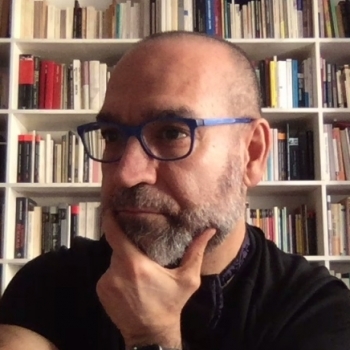
Since the end of the second half of this century, innovation has emerged as a saving mantra for administrations, those that cling to it to gradually incorporate it, with the aim of being more efficient and modernizing. The global financial crisis of late 2008 certainly accelerated this process. At first it seemed like an oxymoron to talk about innovation and public administration. However, today we see that innovation has been installed at all levels of administrations, practically on a planetary scale. This can be seen in the most diverse ways: from units in charge of promoting and facilitating innovation; experimentation laboratories of different kinds; formulation of innovative projects; development of innovative talent in people; even the well-known digital transformation, and a long etcetera. There have been many efforts, and there is no doubt. Resources have been mobilized, people have been involved, and technologies have been acquired to enable the conditions to innovate. However, without belittling these advances, undoubtedly significant, we note that the efforts made are greater than the results perceived. Hence the question arises: what are the limits of innovation in the public sphere?
In this symposium we want to discover, from a critical and constructive perspective, what are the enabling conditions to make innovation germinate and take root in the public sector. We start from the basis that organizational morphogenesis is a critical condition to install innovative practice, like many others. The structure conditions the behavior. The context provides the key information for a practice to be installed. What is the ideal organizational form to innovate? In which contexts does innovation grow or stagnate? These questions will guide the reflections and debates of the speakers.
Coordinates: Marcelo Lasagna (Protea)
Speakers: Eider Sarria (City council of Leioa), Jesús Martínez (CEJFE), Ascen Moro (City council of L Sant Feliu de Llobregat).
Today's societies are increasingly complex and, consequently, the challenges they must face are also. To find the best solutions to these challenges, administrations need to generate new knowledge. Collaborative work is configured as the ideal medium to discuss desirable futures, and explore the strategies and steps to follow to reach them.
In the context of social challenges, collaborative or transdisciplinary research and innovation has been proposed to transgress the boundaries between scientific disciplines and also between theory and practice. The objective is the creation of new knowledge that can help solve, mitigate or prevent societal challenges. It is about knowledge not only about the problems, but also about the solutions. For this, the interaction of both the actors who can theorize about the solutions, and those who can put them into practice and those who are directly affected by their application is key.
Once put into practice, the collaborative research and innovation projects show the importance of mobilizing the teams, as a whole, certain skills, which depend on their success, that is to say, that their work is rigorous, integrator of different perspectives and productive as far as the proposal of viable solutions is concerned. The identification of these skills can be useful not only for teams that work on research and innovation projects, but in general for all those complex teams that undertake collective intelligence processes.
Coordinator: Núria Guevara
Speakers: Núria Guevara Pedemonte (Escola d’Administració Pública de Catalunya), Amalio Rey (Consultor), Laia Pineda (Instittut d’Infància i Adolescència de Barcelona) and Tatiana Fernández Sirera (Estratègia Econòmica, Generalitat de Catalunya)
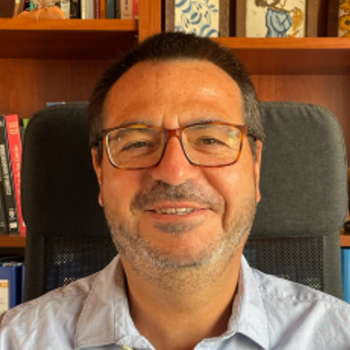
The Communities of Practice are one of the collaborative spaces for sharing experiences and knowledge most used by different types of organizations. Since in 1991 the concept was introduced by Jean Lave and Etienne Wenger in their book "Situated Learning: Legitimate Peripheral Participation", these shared learning spaces have been evolving. Despite the appearance, since its theoretical conceptualization, of new processes and alternatives to share knowledge and experiences, communities of practice are still one of the most used and best valued options by organizations. New categories of communities have appeared, new applications and new functions associated with their management have been identified. All favored by:
1. The good perception of the management in relation to the effectiveness of the communities of practice in relation to the impact they have on the organization. Communities of practice not only generate an impact on quantitatively measurable results, but also empower people, orient them towards action and change, improve collaboration between teams and people and increase their commitment and responsibility towards the organization.
2. The appearance of technological alternatives that facilitate collaborative work: the collaborative and synchronous editing of all types of documents, combined with video-conferences and the possibility of creating multiple thematic collaborative spaces have strengthened the communities integrated by people who develop their work thousands of kilometers from each other.
3. The dissemination by a large number of international organizations of documents that argue the effectiveness of communities of practice and include guides to facilitate their implementation.
Coordinates: Joaquim Carbonell (Neos Conocimiento y Aprendizaje)
Speakers: Mila Ortiz Torremocha (Ajuntament de València), Daniel Giménez Roig (Agency of Public Health of Catalonia), Robert López Pastrana (Ajuntament de Sant Boi de Llobregat) & Elena Losada García (CEJFE)
This Symposium seeks to share the applied research processes designed and implemented by graduates of a Master's in educational management, characterized by carrying out an in-depth organizational diagnosis and the design of a contextualized improvement plan, both with the involvement and participation of institutional referents.
The proposal covers organizations from the public and private spheres, of different educational levels and with different management structures. The contributions of the proposed Symposium synthetically present the organizational context and focus on the strategies carried out by the researchers/advisors and the management teams of the centers involved to achieve the diagnosis and the improvement plan. The initiatives were developed and implemented during the COVID-19 pandemic (2021), which made it possible to identify new tools for collaborative work and for research purposes.
All the presentations take some common analyzers to allow a comparative approach to the different realities, strategies used, as well as challenges and opportunities for organizational learning. The main focus is placed on one of the following concepts: (i) identification of elements based on the phases of organizational development (Gairín, 1998; Gairín & Rodríguez-Gómez, 2020); (ii) description of collective knowledge creation and management processes (Rodríguez-Gómez, 2015); (iii) actors involved in the management of information and communications (Martínez & Muñoz, 2018); (iv) Deep Learning opportunities (Fullan et al. 2018; Quinn et al., 2019), and (v) identification of management resources used during the COVID-19 pandemic (Gairín & Mercader, 2021).
Coordinates: Andrea Tejera Techera (Universidad ORT Uruguay)
Speakers: Alejandro Di Lorenzi (Colegio y Liceo Latinoamericano), Victoria Sequeira (Universidad ORT Uruguay), David Mandirola (Liceo de San Luis), Elizabeth Introini (Colegio Gabriela Mistral) & Dora Sajevicius (Saint George’s School).
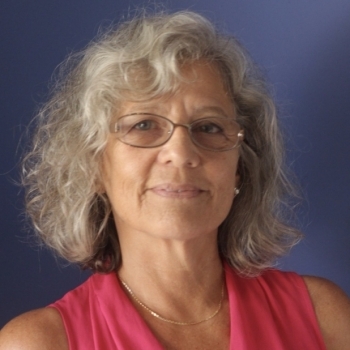
This symposium aims to identify in four institutions of the university field in Uruguay, the dynamics of change that would be generated two years after the pandemic. The objective is to analyze these processes from two analysis coordinates: the practices that promote the creation of knowledge and those that enable the transition between educational models.
The knowledge management perspective allows analyzing the management and use that can be made of records, information analysis and decision making. The approach that analyzes the transition between models allows us to inquire about the levels of flexibility that institutions show when reviewing their traditional structures and procedures in response to changing environments.
Coordina: María Inés Vázquez Clavera (Instituto Universitario Elbio Fernández)
Ponentes: Virgina Piedra-Cueva Ramos (UCLAEH, Uruguay), Eliana Díaz Bruschi (IUACJ), Patricia Boragno Balletto, Virginia Coitinho Sánchez (CFE-IPA) y Micaela de Armas Bertossi (RedAGE-Uruguay)
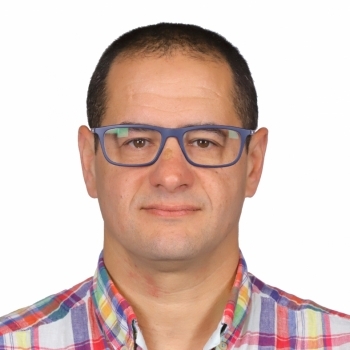
In this compilation of different works and different contexts, research from four Latin American countries is collected. First, from Chile, the management and evaluation of the graduation profile raised by a Chilean public university to ensure the quality parameters is analyzed. It includes institutional monitoring and self -regulation, as well as institutional culture, among other elements to ensure the quality parameters expected of the people graduated from the degrees. Second, also from Chile, an investigation in seven postgraduate programs from a two dimensional study is developed: a documentary analysis of the programs and on the other hand the analysis of the results of a survey of graduates. As a third contribution, from Mexico, members of the Popular Autonomous University of Puebla, work the confluence of learning environments, both formal and informal, for educational actors, as an opportunity for learning management throughout life. From Colombia, specifically from Bucaramanga, with the collaboration of Professor Mario Martín Bris, from the University of Alcalá (Spain), the fourth contribution proposes the work developed in basic education, through experiences and learning for decision making from the information analysis. From two experiences of two educational levels (5th Primary and 9th Secondary), and from the post-pondemic scenario, critical thinking was promoted from learning management and the promotion of computational thinking. Finally, in the fourth contribution, from Granada (Spain) there is a learning situation that meets all legislative conditions, but with an approach that promotes motivation, which is so necessary in the Spanish classrooms of 2nd Compulsory Secondary Education (ESO). Through a participatory approach, students make a final product with a result, at least for them, very satisfactory.
Coordinates: Mohammed El Homrani Maknuzi
Speakers: Margarita Aravena Gaete (Organización de Estados Iberoamericanos), Damaris Roy Sadradín (Universidad Andrés Bello). Gabriela Croda Borges (Universidad Popular Autónoma del Estado de Puebla), Diego Enrique Báez Zarabanda (Universidad de Investigación y Desarrollo), César Torres Martín (Universidad de Granada).
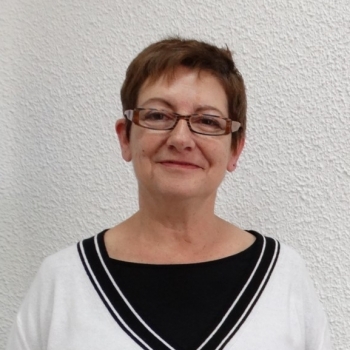
The rapid acceleration of technological and organizational changes in recent years, including the impact of the pandemic, is setting up a scenario where successful experiences in training, learning and knowledge management have been identified. Some of them are even creating a trend, which means that they are recognized, valued and followed in other organizational spheres than those in which they were implemented. The necessary identification of those elements, substantive, original, of value, that have made them sustainable, becomes an obligatory action.
Some of the “ingredients” that make up the success stories mentioned are closely related to technological improvements; but, a large part, is explained by having been established in a theoretical-practical framework that advances the traditional teaching/learning and knowledge management coordinates. The assumed objective, therefore, is to identify, maintain, safeguard, and further expand these already existing contributions.
Coordinators: Maria José Beso Utrera & Elisabet Campos Hernández
Speakers: Oscar Dalmau (Unió Consorci Formació), Elena Losada (CEJFE), Marta Montoliu (Administració de Justícia de Catalunya), Núria Truñó (CEJFE), Natx Jambrina (CEJFE).
The increase in longevity during the 21st century is a challenge for today's society. In recent years, concern has grown among politicians, practitioners and theoreticians to analyze the consequences of population aging and, especially, how it impacts both public and private organizations. Demographic changes, together with the trend in state policies to delay the retirement age, are forcing organizations to rethink their career plans and ensure not only coexistence but, above all, the transfer of knowledge between workers with higher trajectory and age and the new younger generations. Not in vain, one of the priorities of the European Union, consistent with the plan proposed in 2002 by the United Nations to achieve a society for all ages, is to promote collaborative learning between different generations.
University institutions do not escape this situation and represent a case of special interest for study since the profound changes that have been taking place in universities in recent decades have modified the context and the referents of their staff, generating new dynamics and new challenges. .
This symposium presents some of the main results obtained within the framework of the R+D+i project "University and intergenerational learning -PRUNAI" (ref. PID2019-107747RB-I00) financed by the Ministry of Science and Innovation (I+D Program D+i). The main research carried out to date on intergenerational relationships and learning in work contexts will be reviewed, followed by an analysis of the results obtained on the intergenerational climate of various university units in the fields of teaching, management and research. Likewise, some of the main conditioning factors of these intergenerational learning processes in university work contexts will be reviewed. Finally, the main guidelines of a proposal that allows fostering intergenerational learning among the teaching and research staff of our universities will be presented.
Coordinator: David Rodríguez Gómez
Speakers: Sheila Garcia (Universidad de León), Beatriz Jarauta (Universitat de Barcelona), Teresa González (Universidad de Sevilla), Inma Aznar (Universidad de Granada) & Pilar Cáceres (Universidad de Granada).
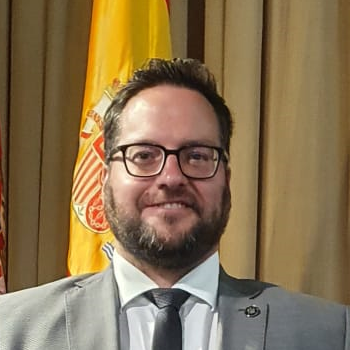
The digital breach is a reality that, far from diminishi ng, is increasing due to the gap between the speed of educational policies and the exponential speed of technological progress. This reality becomes more relevant in the present context given the translation that is taking place as a consequence of digitiz ation, since some investigations have come to consider that the implementation of technology in the classroom has not been real due to the scarce teacher training. A situation that has been empirically demonstrated in the online teaching scenario that is b eing widely implemented in educational centers as a result of the global pandemic caused by COVID19.
Through this symposium, in the first place, it will be analyzed how the new framework has been aligned with the regional, state and European proposals on digital competences with the aim of incorporating the knowledge and experience acquired and facilitating convergence in the creation of a European Education Area in 2025. Regarding digital development, the general context is outlined in the Communication o f the European Commission Digital Compass 2030, and is linked to the funds of the Next Generation EU recovery plan, among whose objectives is the development of digital skills through three programmes: the Skills Agenda for Europe, the Digital Education Ac tion Plan and the Coalition for Digital Skills and Jobs. At the state level, the general guidelines are established in the Digital Spain 2025 agenda and in the National Plan for Digital Competences. Next, we will proceed to the analysis of the object and i ts structure in relation to the current social dissonances. Thus, from the point of view of the management of formal learning in higher education organizations with the new reference framework of digital teaching competence, secondly, the professional comp etences of teachers will be addressed, thirdly, the Pedagogical competences of teachers, and finally, Teaching competences for the development of students' digital competence.
Coordinates: Santiago Alonso García (Universidad de Granada)
Speakers: Magdalena Ramos Navas-Parejo (Universidad de Granada), María Natalia, Campos Soto (Universidad de Granada), José María Romero Rodríguez (Universidad de Granada), Fernando Lara Lara (Universidad de Granada).


